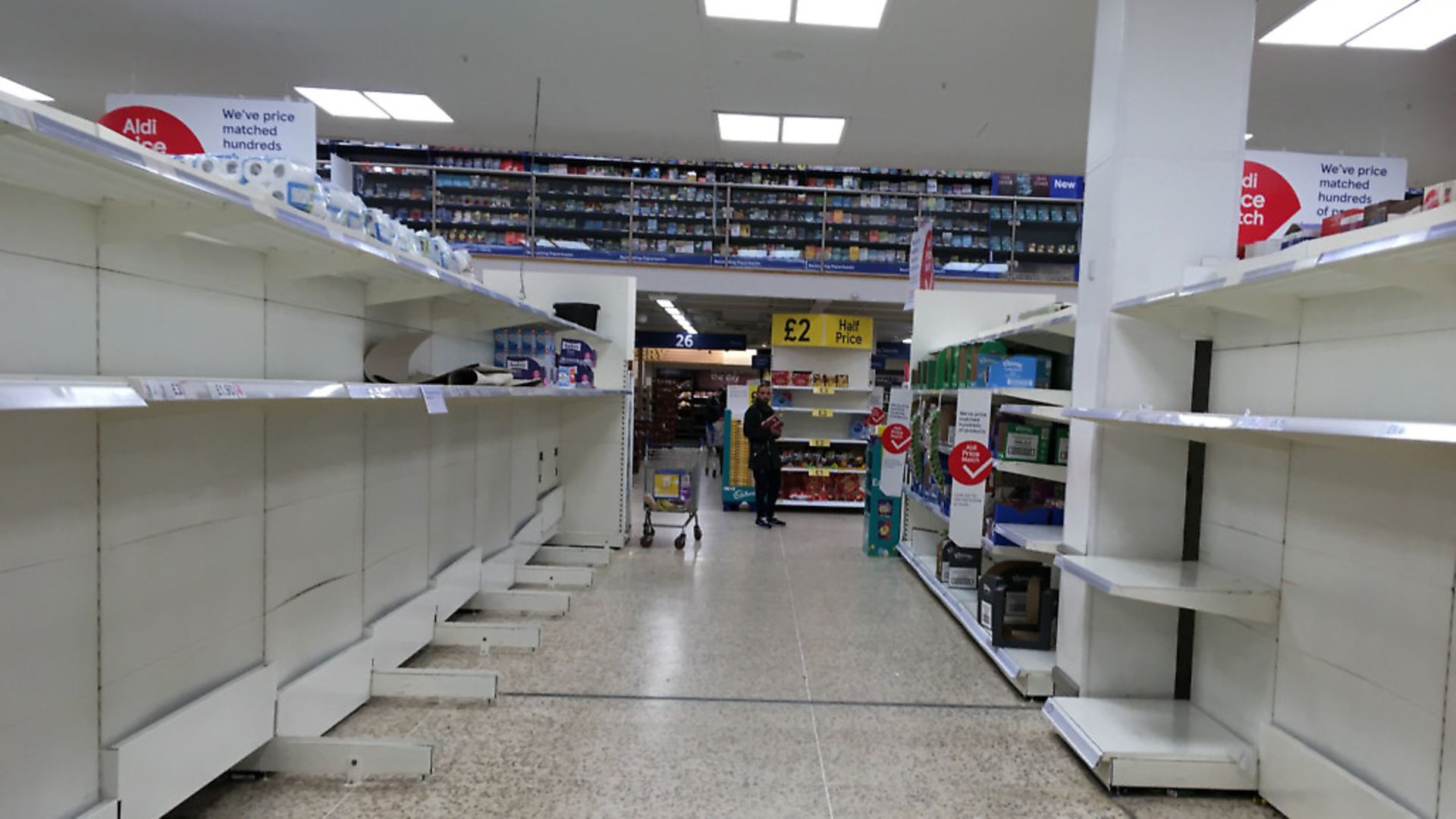
A group of MPs have said that the government needs to introduce a minister for food security ahead of Brexit and a second wave of coronavirus.
A new report by the Commons Environment, Food and Rural Affairs Select Committee warns the government ‘cannot be complacent’ and said possible future crises triggered by climate change or a disorderly end to the Brexit transition period could pose challenges to food supplies.
Neil Parish, the Tory chairman of the committee, said despite the easing of lockdown, ‘problems with food security are far from over’.
Have your say
Send your letters for publication to The New European by emailing letters@theneweuropean.co.uk and pick up an edition each Thursday for more comment and analysis. Find your nearest stockist here or subscribe to a print or digital edition for just £13. You can also join our readers' Facebook group to keep the discussion and debate going with thousands of fellow pro-Europeans.
He added: ‘Food banks and other food redistribution organisations have reacted heroically to a shocking spike in demand for food aid, but this problem is likely to get worse before it gets better.
‘It is therefore essential that the government appoints a new minister for food security who will stop this issue falling between the cracks.
‘The government’s actions to lock down the country and close businesses were necessary, but they had huge impacts on the food sector and on food security.’
While Parish said the Department for Environment, Food and Rural Affairs was ‘commendable’ during the pandemic, he said the government response could have been better.
He added: ‘Despite warnings from other countries, it seemed as though the government was constantly playing catch-up in trying to support the food industry during this crisis.
‘The pandemic also highlighted our reliance on key workers, and I unreservedly thank those in the food supply chain whose work kept the nation fed throughout the crisis.
‘In the future the government will need to communicate better with the public.
‘The voucher scheme for free school meals failed to recognise where families using them were likely to shop and encouraging everyone to shop online, when supermarkets had warned they would struggle to meet demand, set the scene for public frustration.
‘We want the government to learn lessons for the future.
Shadow environment secretary Luke Pollard said: ‘This is a balanced and measured report that endorses what we have been saying – the government dithered over food supply and outsourced responsibility to the big supermarkets.
‘The real reason for surging food poverty is not a lack of food, it is too much poverty. We need action to ensure families can feed themselves, including improving the chaotic and unfair free school meal voucher scheme.
‘Food insecurity is a national security issue. Covid-19 has laid bare serious weaknesses in our food supply chain, which is approaching another severe test this December when the Brexit transition period ends.’
Naomi Smith, from pro-EU group Best for Britain, said the report is an admission that food security is threatened by a lack of a good EU deal.
She said: ‘Our trading relationship as part of the EU allowed high-quality food to come into the UK tariff-free. Now we will have to pay more for European goods while being asked to swallow low-quality cheap imports from the US.
‘Both of these issues create challenges for the UK’s food security, which is about ensuring people are fed with affordable and good quality food.
‘While people are aware about the threat of chlorinated chicken, it’s less well know that basic food items like tinned tomatoes, olive oil, beans, pasta and pulses face now face import taxes. Pasta, for example, is a staple food, with around 343, 200 tonnes brought into the UK each year. If the new tariff regime creates a 6% tariff, the average price of a packet of pasta will rise from 53p to 65p. Over the course of a year, that’s an increase of more than £20 million for UK consumers.’
A government spokeswoman said: ‘As we have seen in recent months, the UK has a large, diverse and highly resilient food supply chain – which is able to cope with unprecedented pressures.
‘During this time the government has worked closely with the food industry to prepare for a range of scenarios and has invested record levels of funding to help people get the food they need.
‘Our Covid-19 taskforce has also brought together expertise across government to tackle the extraordinary circumstances of this pandemic and ensure those most vulnerable in our society are protected.’









